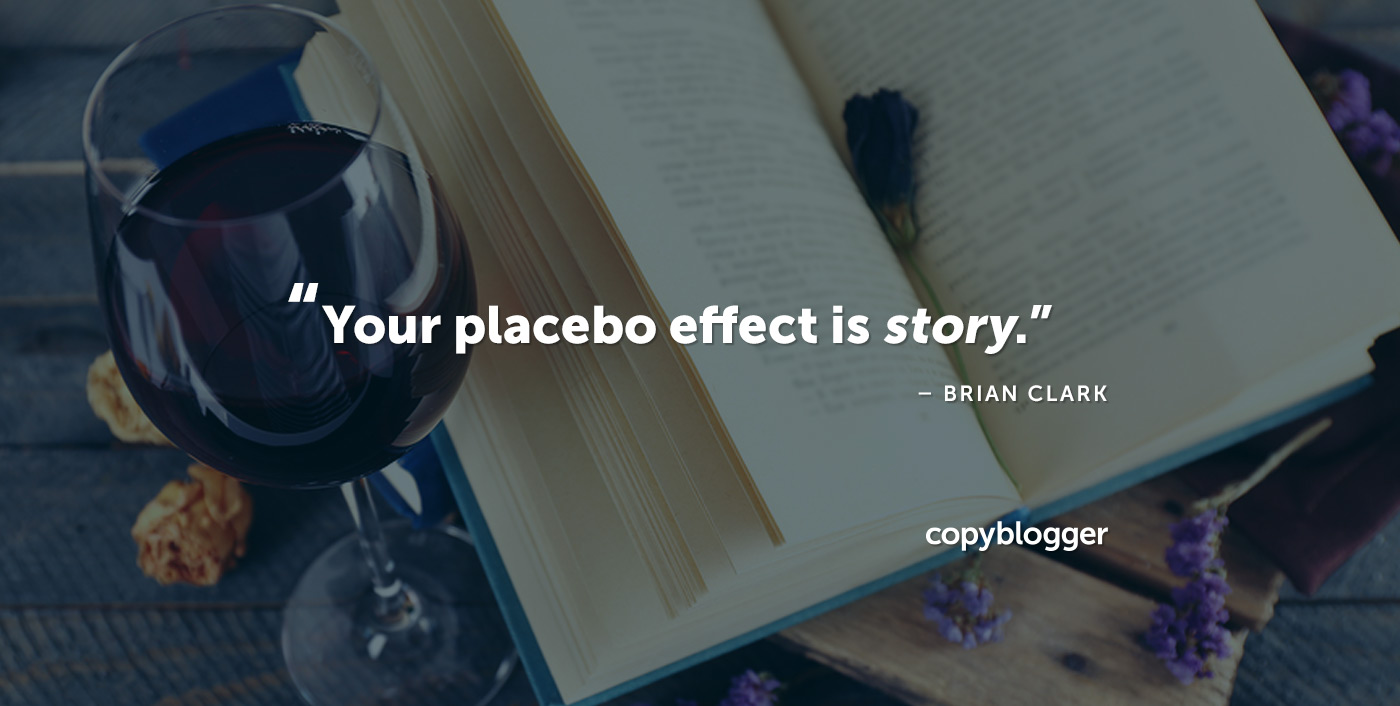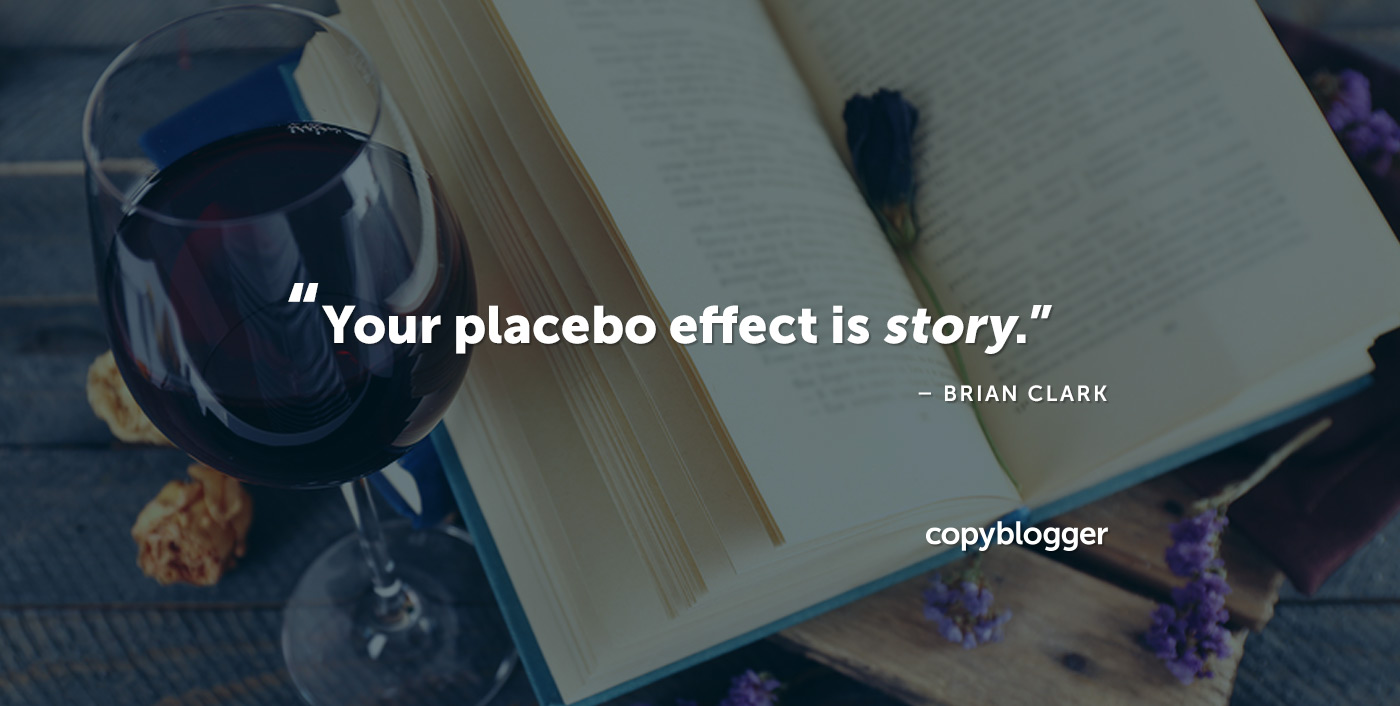Strangely enough, none of the other cancer patients treated with Krebiozen showed any improvement. The things we buy fulfill our expectations if belief and experience remain consistent, regardless of “reality.” Can a glass make wine taste better? And yet Matthews, Parker, hundreds of other wine experts, and thousands of customers now swear it’s true. But subjectively, when belief in the glass and the experience of the glass are added back in the mix, it matters. And the wine does taste better to these people, just like the placebo effect can make people well. Your placebo effect is story The Riedel glass story kicks off Seth Godin’s All Marketers Are Liars Tell Stories, probably his most important marketing book after Permission Marketing. Godin thought he was keeping it real, but his audience largely rejected the story he was telling because of the frame he chose. If your story is deemed authentic, people will kick in belief by telling the story to themselves, and buy. These stories are how your placebo effect spreads and becomes real to more and more people. What’s your story?

Back in the 1950s, a bedridden man faced certain death from cancer of the lymph nodes.
Tumors the size of oranges had invaded the man’s neck, groin, chest, and abdomen. The patient’s only hope was a new experimental cancer drug called Krebiozen.
Three days after initial treatment, the man was out of bed and joking with nurses. As treatment continued, his tumors shrunk in half.
Ten more days later, he was discharged from the hospital … the cancer was gone.
Strangely enough, none of the other cancer patients treated with Krebiozen showed any improvement.
Stranger still, a few years later it was conclusively determined that Krebiozen had no therapeutic value whatsoever.
Welcome to the power of the placebo effect.
The placebo effect, and the power of belief and experience
A placebo is, by definition, a substance that doesn’t actually provide the promised benefit — it’s not real.
The placebo effect, however, is very real.
Research spanning decades demonstrates that placebos (sham treatments) have resulted in true beneficial results.
“Placebos have helped alleviate pain, depression, anxiety, Parkinson’s disease, inflammatory disorders, and even cancer.”
The placebo effect works in very real ways because people consciously believe the treatment will work. Not only that, but the experience of being treated, even with a “fake” medication, creates subconscious associations that lead to recovery.
Belief and experience are two vital ingredients of effective marketing as well.
The things we buy fulfill our expectations if belief and experience remain consistent, regardless of “reality.”
Can a glass make wine taste better?
Consider the case of Riedel wine glasses, a highly successful line of glass-blown wine receptacles designed to deliver the wine’s “message” via the carefully crafted form of the glass.
In other words, the shape of the glass makes the wine taste better.
Skeptical?
So was Thomas Matthews, executive editor of Wine Spectator. Premier wine critic Robert Parker, Jr. was also initially unconvinced.
And yet Matthews, Parker, hundreds of other wine experts, and thousands of customers now swear it’s true. Taste tests throughout Europe and the U.S. proved time and…

COMMENTS